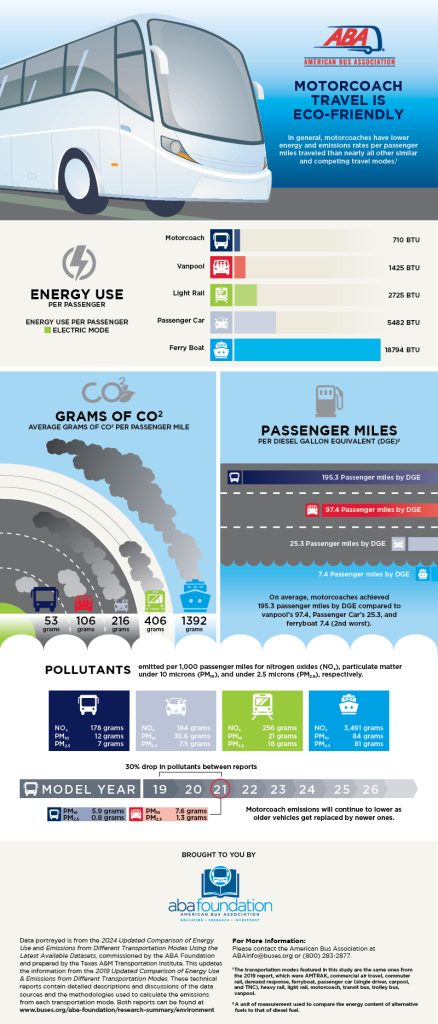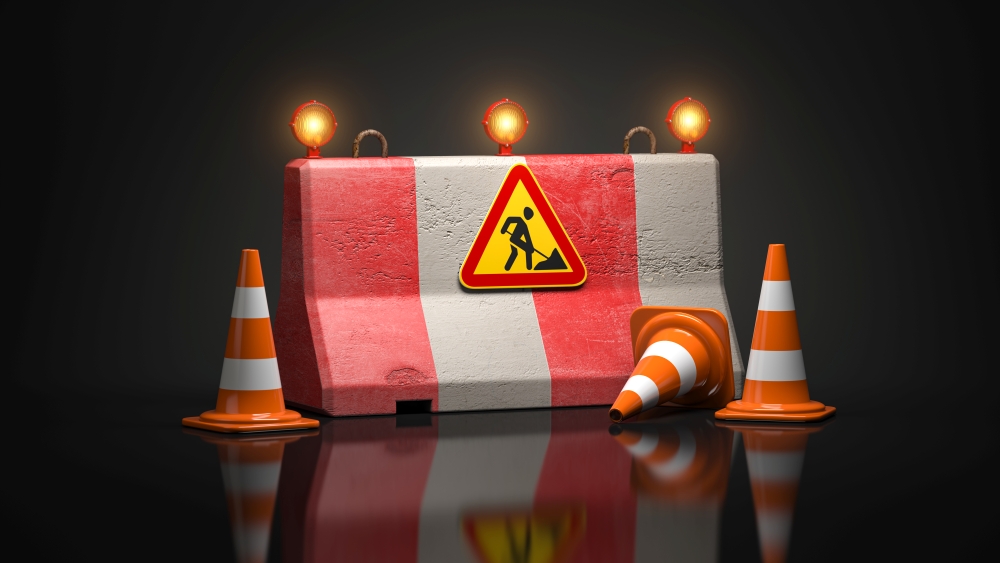ABA Applauds Motorcoaches as Eco-Friendly Transportation Leaders
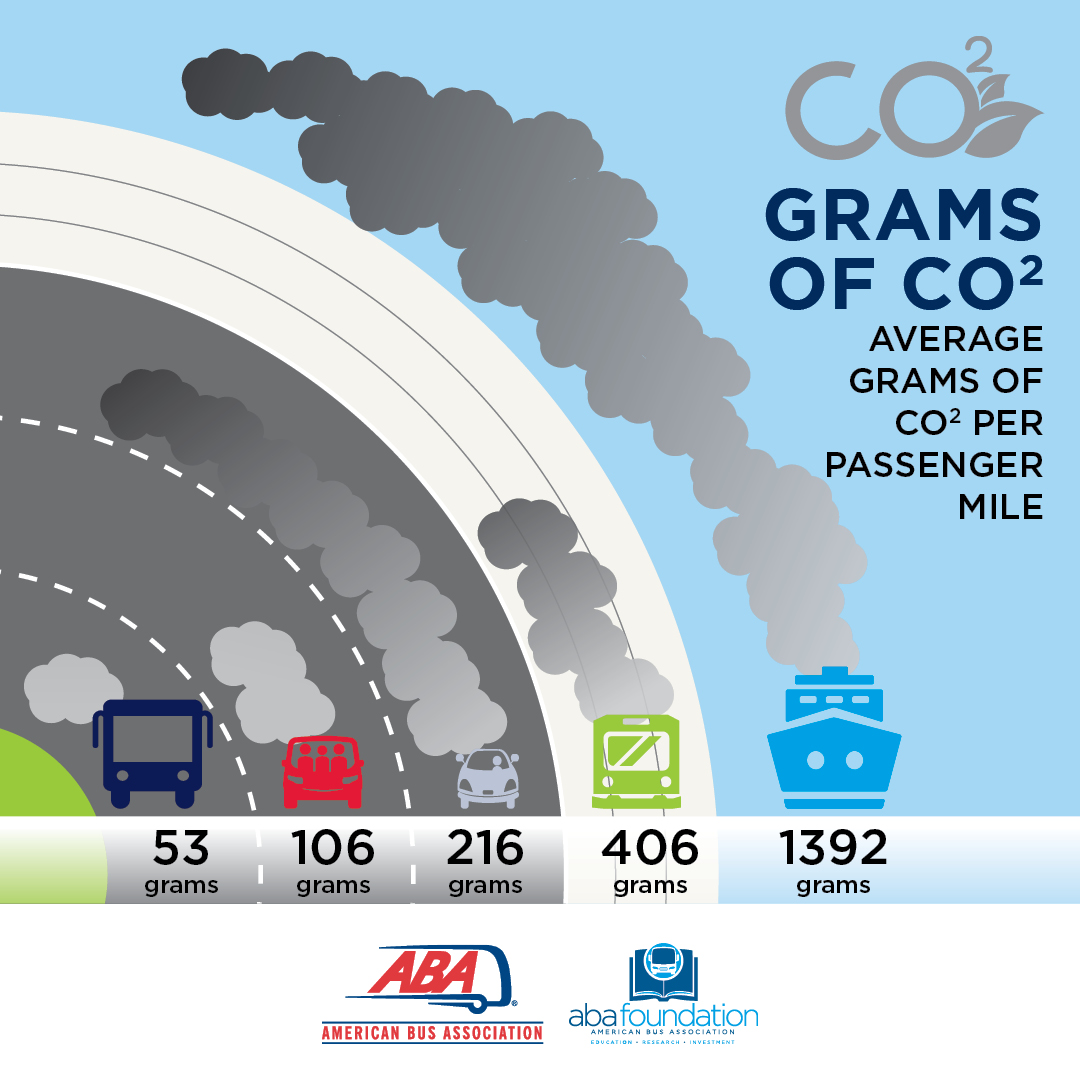
The American Bus Association Foundation (ABAF) proudly announces the release of the “Updated Comparison of Energy Use and Emissions from Different Transportation Modes Using the Latest Available Datasets” report, a groundbreaking study sponsored by ABAF and conducted by the Texas A&M Transportation Institute (TTI). This report builds upon the 2019 study and reaffirms motorcoaches as a sustainable and environmentally friendly mode of transportation.
“This recent report continues to show the energy efficiency and low emissions by motorcoaches, especially on a per person basis,” says ABA CEO Peter J. Pantuso, CTIS. “It is clearly the best travel option for most of the traveling public and the environment.”
Motorcoach buses, widely recognized for their passenger-carrying capabilities in long-distance services, encompass touring, intercity travel, private charter, and commuter transit. The ABAF partnered with TTI to assess the environmental impact of motorcoach operations, comparing energy use and emissions with other transportation modes. The study continues the legacy of the 2019 report, ensuring an up-to-date evaluation based on the latest available information and emission rates.
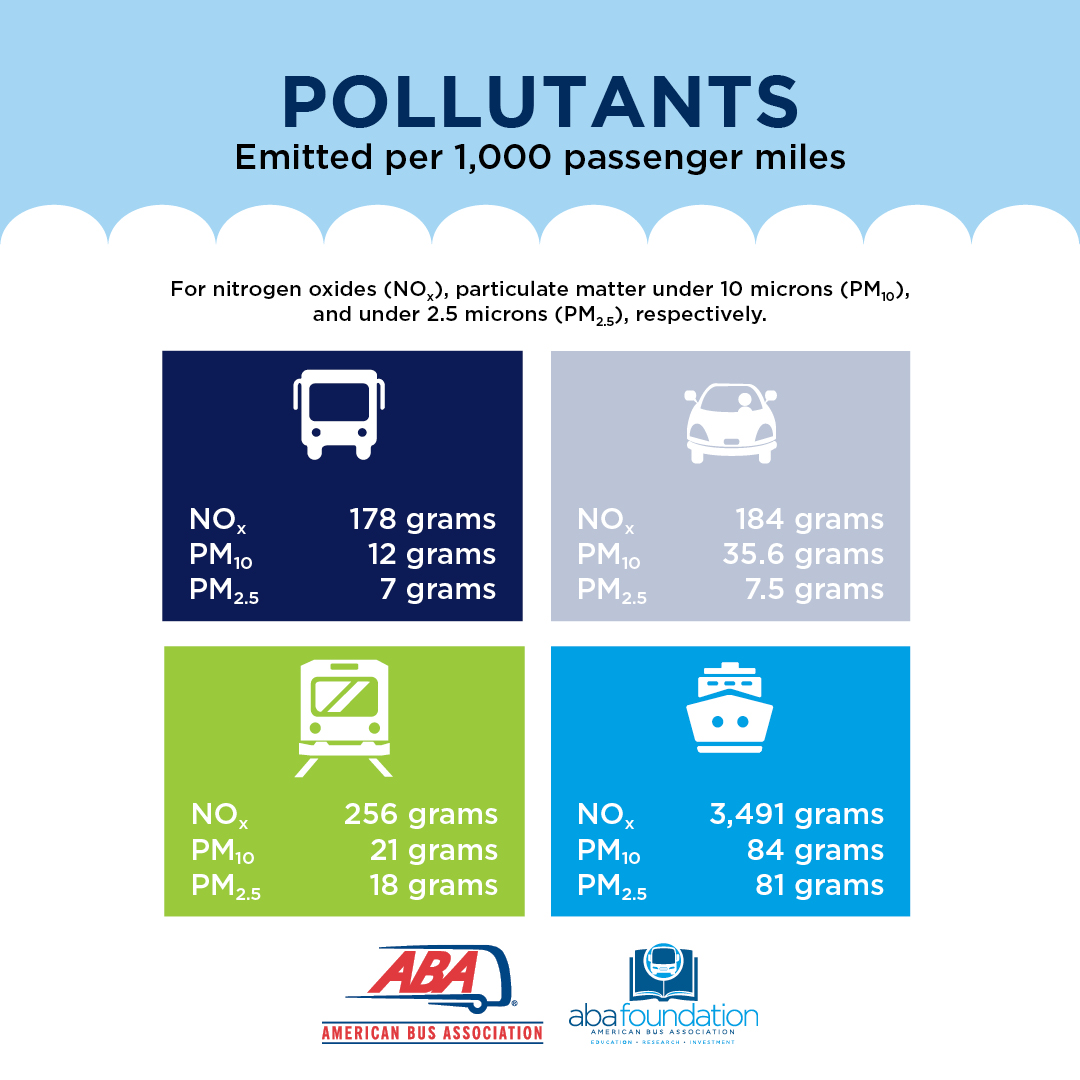
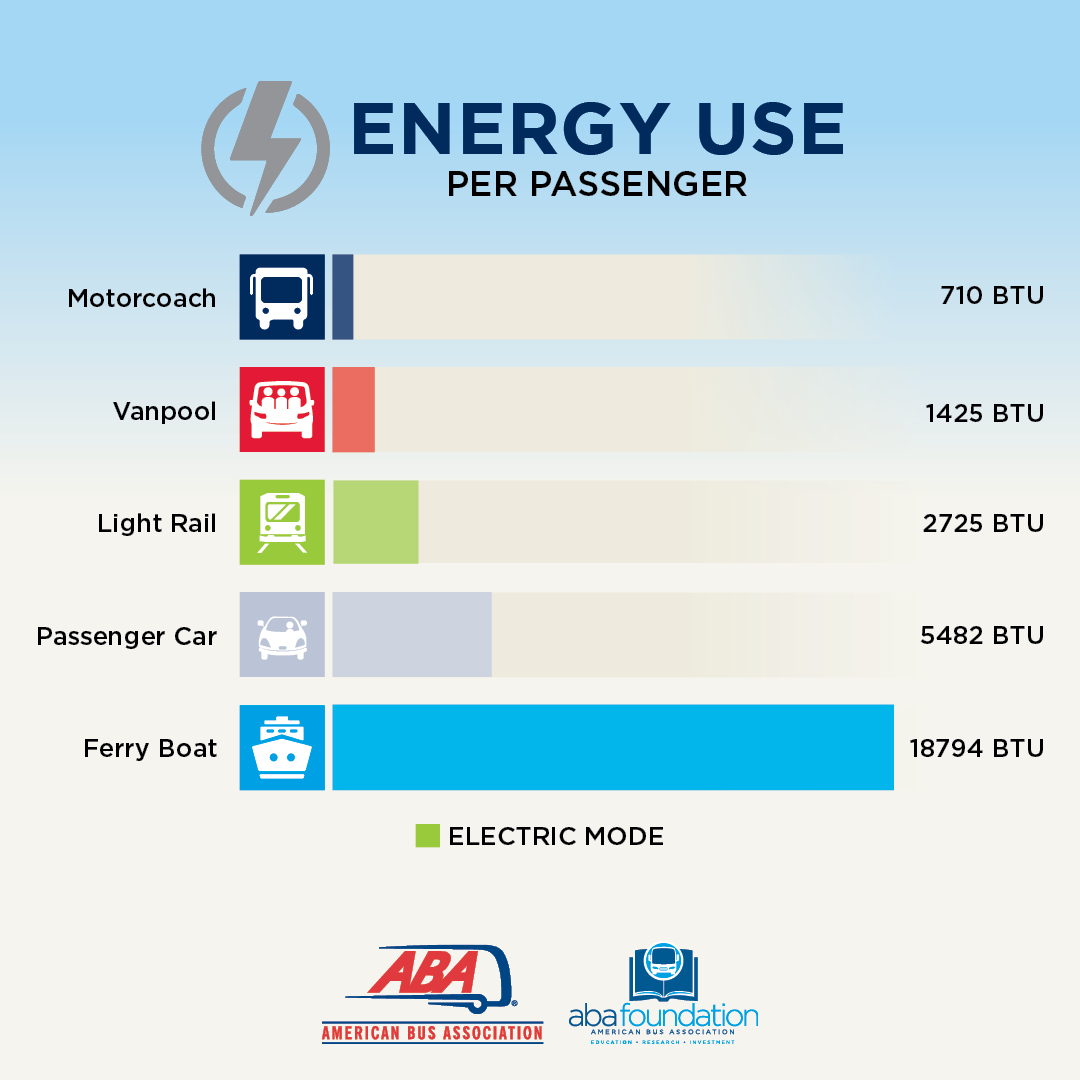

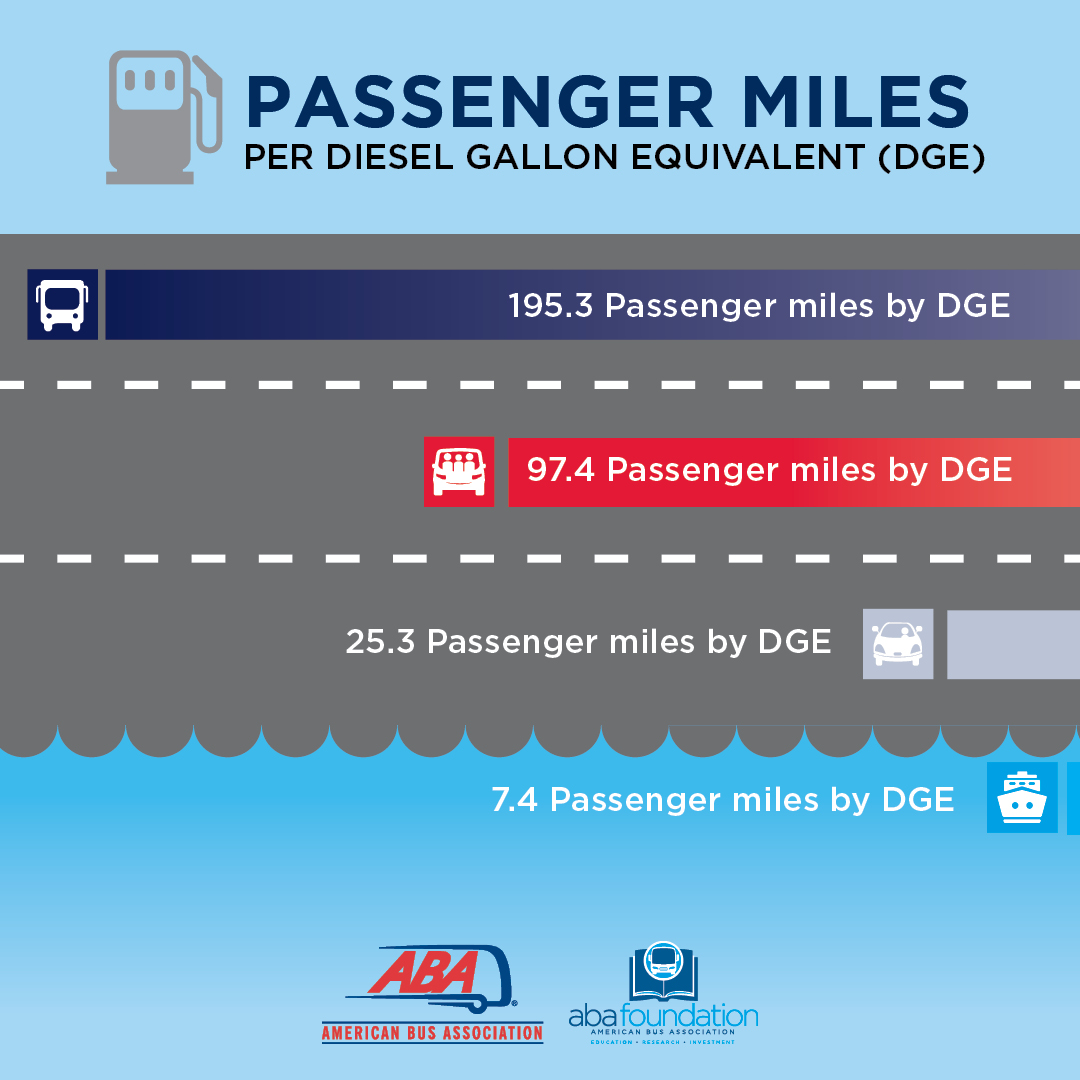
Key Findings
The findings from the report underscore the superior environmental performance of motorcoaches compared to other transportation modes:
- Passenger-Miles per Diesel Gallon Equivalent (DGE): Motorcoaches achieved an impressive 195.3 pass-mi per DGE, surpassing vanpool (97.4, 2nd best) and ferryboat (7.4, 2nd worst).
- Energy Use per Passenger-Mile: Motorcoaches consumed an average of 710 Btu per pass-mi, outperforming vanpool (1,425) and ferryboat (18,794).
- Carbon Dioxide (CO2) Emitted per Passenger-Mile: Motorcoaches emit only 53 grams of CO2 per pass-mi, compared to vanpool (106) and ferryboat (1,392).
- Pollutants Emitted per 1,000 Passenger-Miles: Motorcoaches ranked 5th, 4th, and 4th for NOx, PM10, and PM2.5, respectively, demonstrating their commitment to air quality.
- Model Year 2021 Vehicles: Motorcoaches boast the lowest PM emission rates among on-road transportation modes, with 5.9 grams of PM10 and 0.8 grams of PM2.5 per 1,000 pass-mi.
- Environmental Impact Amidst COVID-19: Pass-mi per DGE dropped across transportation modes due to COVID-19, but motorcoach emissions are expected to decrease further with the introduction of newer, more fuel-efficient vehicles.
For More Information: The detailed technical report for 2023 provides a comprehensive overview of data sources, methodologies, and quality assurance/control measures.
The American Bus Association Foundation remains committed to promoting sustainable and environmentally conscious transportation solutions.
